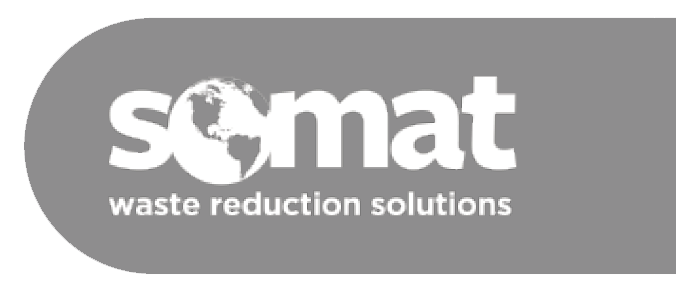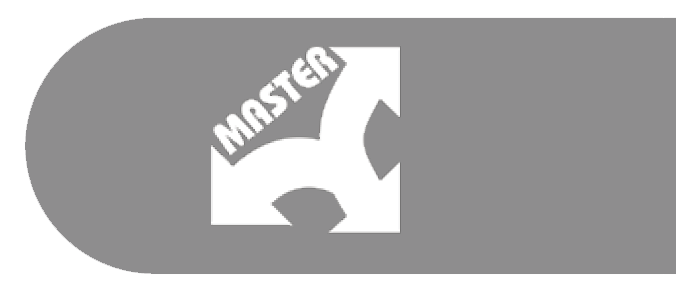It’s Murphy’s Law: if the warewasher goes down in a restaurant, it’s going to be right in the middle of your dinner rush on a Friday night. So if you’re a foodservice professional, be proactive—avoid costly downtime and overtime fees from service providers by performing simple preventative maintenance tasks. Just like a car, regular preventive maintenance on a warewasher can help to extend the life of your investment and keep things running optimally, helping to prevent a future breakdown at an inopportune time.
It’s all about procedures.
You can have the best, most state-of-the-art warewasher, but if the human element is not working in concert, the best intentions can be defeated. A foodservice operation’s commercial warewasher is often its greatest equipment investment, and paradoxically, too often operated by employees with the least training. Observe your operator’s process regularly to evaluate pre-scrapping, proper dish racking, chemical levels and end-of-shift machine cleaning. Simple care and preventivie maintenance will help to preserve your investment for years to come.
Water is the essence of commercial dishmachine life.
Did you know that the water entering your warewasher can influence wash results, frequency of preventive maintenance tasks like deliming, and overall life expectancy? If you don’t know your building’s water hardness, now would be a great time to find out. Understanding your facility’s water quality (i.e., mineral content, pH level) will help to determine if a water conditioner would be beneficial. Hard water conditions—where total dissolved mineral solids are 7 grains per gallon (GPG) or more—can create lime scale in warewashers at an accelerated rate. If not addressed with a regular deliming schedule, the effects could lead to corrosion, energy loss and failure on heating elements, higher chemical consumption, discoloration and general increased costs. For optimal cleaning results and operation, a 3.5 GPG is recommended.
Proper training is paramount.
Lean on your dishmachine manufacturer for the tools you need to train your employees on proper care and preventive maintenance. The manufacturer’s website is usually a wealth of knowledge, including training videos and operator manuals. Some manufacturers may even provide employee training during machine install/start-up. Establishing good habits upfront like proper dish racking, chemical level monitoring and machine cleaning is key. Get things kicked-off right with the foundational knowledge you need to protect your investment. And don’t be afraid to ask questions along the way.
Cleanliness is next to godliness, right?
Remember that old adage? It applies to so many facets of our lives—even in a commercial dishroom! Have you ever picked up a plate to go ‘all out’ at your favorite buffet, just to feel a slimy, slippery residue between your fingers? It’s hard to forget. This is a clear sign that the recirculating water in the warewasher is long overdue to be refreshed. So what is the recommended daily preventive maintenance that my employed dishwasher should pledge to, you ask? The following procedures should keep things on track.
As a general rule to live by, clean the machine at the end of each working shift, or at least daily. Your dishmachine manufacturer will have cleaning best practices specific to your machine, but the following steps apply to all machines:
- Turn off. Push the machine’s ‘off’ button to shut down the machine.
- Drain. Open the machine and drain it by lifting the drain lever or opening the manual drains.
- Strainer pans. Remove and empty the scrap basket and strainer pans. Wash and rinse them thoroughly.
- Interior. Thoroughly cleanse and flush the dishwasher interior. Remove remaining soil with a soft cloth or brush and mild cleanser; rinse again. Check for worn curtains and broken conveyor peg links (if applicable). Do a visual check for general obstructions.
- Pump cover. Clean with a soft cloth or brush. Do not allow food soil to accumulate on the tank bottom, tank sides or enter the drain. A drain obstruction will prevent proper drain closing, resulting in insufficient wash water, which equates to dishes not getting clean.
- Overflow tube. Remove the overflow tube (i.e., standpipe) within the machine’s tank. Wash and rinse this tube inside and out.
- Wash and rinse arms. Remove and check wash arms and rinse nozzles to make sure they are free of any lime scale and food solids. Replace and make sure they rotate freely and are without obstructions.
- Replace parts. All removed parts should be properly assembled back into the machine.
- Exterior. Wipe down the exterior of the machine with a soft cloth. Never use steel wool to clean warwasher surfaces; use only products that are safe on stainless steel.
- Air out. Leave machine door(s) open to allow interior to air out and dry overnight.
Lime scale is the pits.
Lime scale looks like a chalky, white film and is the result of hard water. Deliming of your warewasher is necessary if deposits are visible inside or outside the machine, to keep things running at peak performance. Instructions for deliming should be available in the operator’s manual you received with the machine, but the chemical provider you choose will very likely recommend a deliming schedule based on your water conditions and ware volume.
Handle with care.
If you want your warewasher to have a nice, long-life, make sure your operators are handling it with care. The following rules should be tattooed in the minds of your dishwasher employees:
- Garbage in, garbage out. Pre-scrap dishes of loose debris before they enter the warewasher for optimal results.
- Professional chemicals only, please. All detergents are not created equally. Make sure you are using one that is recommended by your chemical provider, and follow recommended concentrations for detergent, sanitizer, rinse aid or lime scale remover.
- Did I say delime? Make sure you are following the chemical provider’s deliming schedule to keep the machine tip-top.
- Don’t force it. Trying to put things into the machine that don’t fit is not recommended. Doing so could require a service call, and nobody likes an unnecessary service call. Nobody.
- Refresh. Drain the machine at prescribed intervals to refresh water and chemicals. You’ll have more consistent wash results this way and avoid the proverbial ‘oil slick’ on your ware items.
- Avoid metallic contaminants. Don’t allow foreign objects to enter the unit, especially metallic contaminants such as paper clips, retainers, etc. This is just a recipe for disaster, so keep a vigil eye.
- The big bang theory. Never bang wash or rinse arms against hard surfaces, as this could damage components and compromise perfomance.
Failure to follow use, care and maintenance instructions may void your manufacturer’s warranty, so keep things copacetic in the dishroom!
If you must, leave it to the professionals.
Daily cleaning is still on your watch, but if the thought of deliming your machine gets you feeling overwhelmed, just leave it up to the pros. Ask your service or chemical provider to establish a regular preventive maintenance schedule to check o-rings, pump seals and general wearing parts. You’ll have peace of mind so you can focus on the element that matters most: delighting your valued customers.




